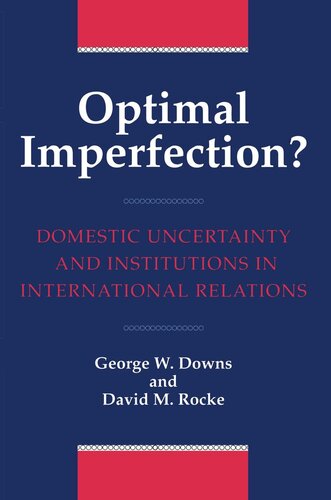

Most ebook files are in PDF format, so you can easily read them using various software such as Foxit Reader or directly on the Google Chrome browser.
Some ebook files are released by publishers in other formats such as .awz, .mobi, .epub, .fb2, etc. You may need to install specific software to read these formats on mobile/PC, such as Calibre.
Please read the tutorial at this link: https://ebookbell.com/faq
We offer FREE conversion to the popular formats you request; however, this may take some time. Therefore, right after payment, please email us, and we will try to provide the service as quickly as possible.
For some exceptional file formats or broken links (if any), please refrain from opening any disputes. Instead, email us first, and we will try to assist within a maximum of 6 hours.
EbookBell Team

4.7
86 reviews"Domestic politics matters" has become a rallying cry for international relations scholars over the past decade, yet the question still remains: Just how does it matter? In this book, George Downs and David Rocke argue that an important part of the international impact of domestic politics springs from the institutional responses to its many uncertainties. This impact is due not so much to the errors in judgment these uncertainties can cause as to the strategic and institutional consequences of knowing that such errors are possible.
The heart of the book is its formal analysis of how three kinds of domestic uncertainty have shaped international relations through their influence on three very different institutions. One chapter deals with the decision rules that citizens create to cope with uncertainty about the quality of their representation, and how these can lead to the paradoxical "gambling for resurrection" effect. Another chapter describes the extent to which the weak enforcement provisions of GATT can be understood as a mechanism to cope with uncertain but intermittent interest group demands for protection. The third chapter looks at the impact of uncertainty on the creation, survival, and membership of multilateral regulatory institutions, such as the Montreal Protocol and EU, when some states question the capacity of other states to meet their treaty obligations.